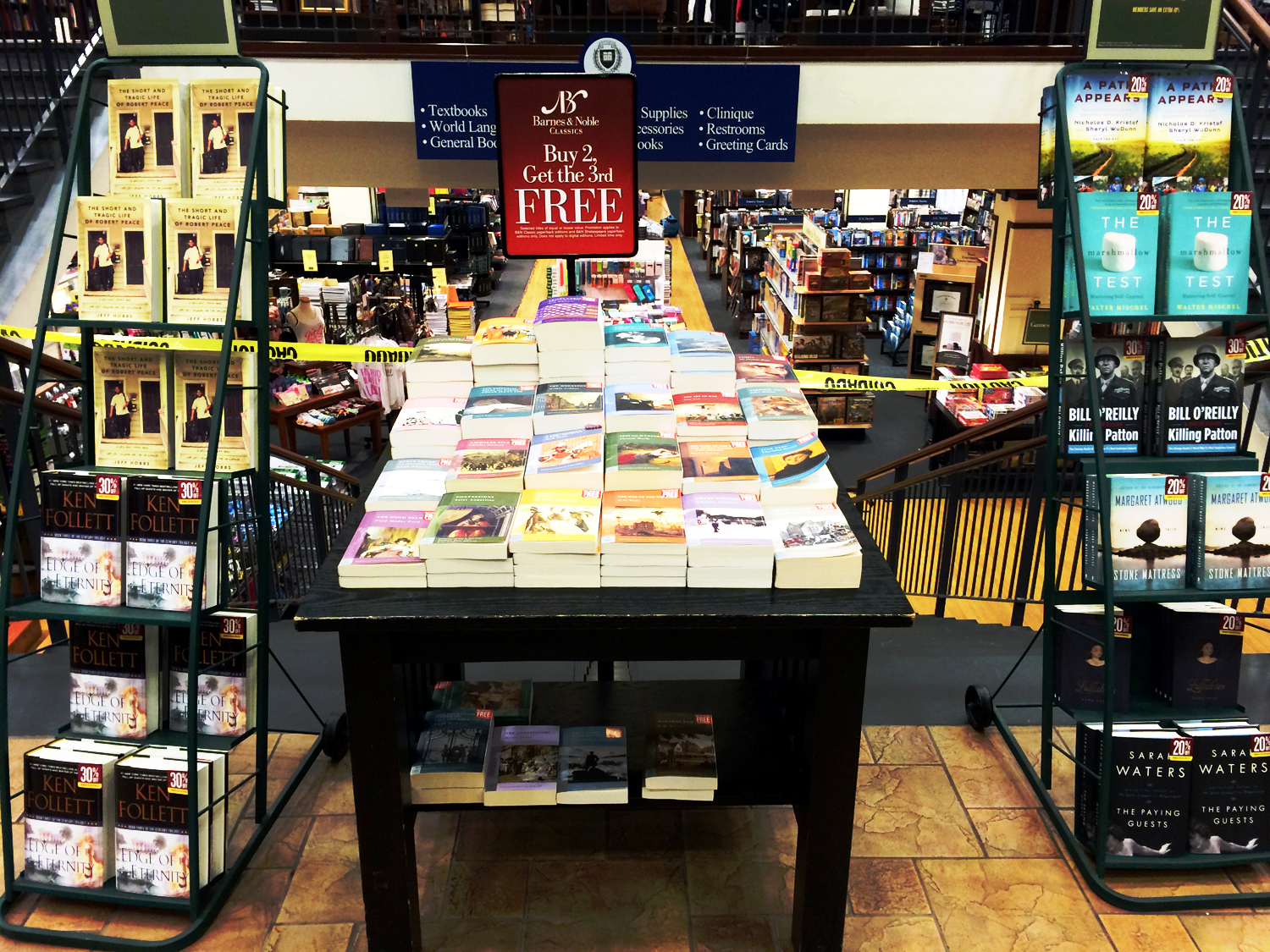
The weekend after shopping period ended, only a few students were perusing the aisles of the Yale University Bookstore to find their required texts — so where are Yalies getting their books?
Yalies in Bass Café told the News that as textbook prices continuously increased, they had to look for creative ways to acquire class materials this semester. Students said that they used services ranging from the campus bookstore to Borrow Direct to online shopping to save the most money.
Some first years who were interviewed, such as Brian Liu ’22, said that it was “shocking” to see how expensive college textbooks were.
“There were a lot of things I had to spend money on when I first came here,” Liu said. “And I didn’t think textbooks should be such a big part of it.”
After buying textbooks at the Yale Bookstore during his first semester at Yale, Liu said that he searched elsewhere this semester to find a better deal. He got books from upper-level students who had already taken classes in which he is currently enrolled, and also scoured the web for online copies of the required texts to avoid the high price tag.
Liu added that he took two courses in which professors did not require students to buy books, instead opting to incorporate online articles or other publicly available PDFs in the syllabus. For Liu, the courses without official textbooks seemed more cohesive because “the professors use better thought in organizing the class.”
Liney Kindler ’22 also said that she favored courses that do not require students to buy books. She explained that she believes that these types of “no-cost courses” demonstrate that professors have contemplated the financial burden that their class places on students. Though her spring schedule requires her to purchase two textbooks, Kindler said that she is not trying to buy either of them.
“I have two classes that require textbooks, and for one of them, I’m just not getting it and we’re going to hope that works,” Kindler said, laughing. “The other I’m renting through an online site called Chegg.”
Kindler admitted that she dislikes using online textbooks and plans to return her psychology e-book once she can get a physical copy. She explained that the book would be her most expensive purchase of the year, but she is trying to borrow it from another university’s collection through Borrow Direct.
Described by the University library website as “a rapid delivery service that allows you to search and obtain books from some of the top academic libraries in the country”, Borrow Direct allows Yale students to check out books from other universities’ collections for 16 weeks at a time.
Lillie Horton ’22, an avid user of Borrow Direct, said that her total book cost for the spring semester was less than half of the cost in the fall because she borrowed many of them through the service.
“Last semester I probably spent $100 on books, maybe a little less,” Horton said. “This semester, I spent exactly 26 dollars.”
If she cannot get a book through the library, Horton said that she spends a lot of time searching for the best deal online. She noted that she looks for used books to find the cheapest one.
But according to Dave Duda, owner of Book Trader Café, buying books online is hurting bookstores everywhere.
“Everything has changed with the internet,” Duda said. “[Online book buying] is hurting new and used bookstores — especially with textbooks because they are so expensive.”
Duda, who has worked with academic books for over 30 years, said that the internet is cutting out the middleman of bookselling: the store itself. Adding that paying retail for a textbook is almost unheard of today, he said services like Amazon.com, while convenient, take revenue from smaller stores, sometimes putting them out of business.
In the past, Duda said that many Yale students sold their old textbooks to Book Trader, but these days, many of them choose instead to sell their books online. Though he admitted that the store usually will not put “a big Chemistry textbook” on its shelves, they resell a lot of books necessary for humanities courses.
“When people bring us big textbooks, sometimes we won’t shelve them because someone might steal it,” said Duda. “A lot of classes don’t have big books though! We sell lots of smaller paperbacks like the ones for [Directed Studies]!”
Book Trader Café offers cash and store credit in exchange for books.
Audrey Steinkamp | audrey.steinkamp@yale.edu







